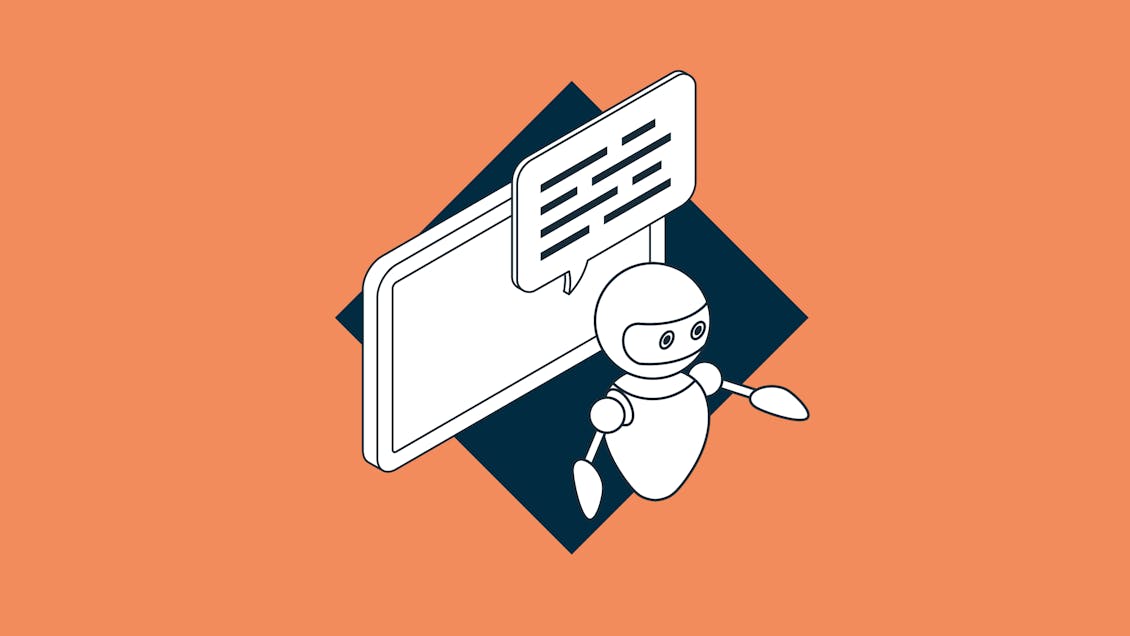How writers can use generative AI (and still sleep at night)

Disclaimer: This is NOT one of those "this-piece-was-written-by-AI" articles.
In the time between thinking about writing about generative AI and completing this article, ChatGPT has become a household name. Including OpenAI’s flagship product, there are more than a dozen AI content creation tools to choose from. Think pieces, legal reviews, Substacks, and podcasts have exhausted the debate on how AI will impact writing jobs. The reality is that generative AI is here, and it is changing many industries. Maybe forever.
But that’s not what I’m here to write about.
I’m more interested in the tension between human creators and AI generators. If you’re like me, you’re a writer sitting at an existential crossroads. Let’s unpack it.
What is generative AI good for, anyway?
I was struck by something I read in a recent VeryGoodCopy article: “[AI] can’t feel the gravity of a profound moment … And so, AI cannot write like us. ... The Human Condition—its nuances and imperceptibles, its vastness—belongs to us.” In the end, VGC figurehead Eddie Shleyner concludes that AI is a great productivity tool (e.g., not a replacement) for writers, but I keep coming back to this idea: the Human Condition belongs to us.
But, what about those days when there is no profundity to be found? The moments where I just need to produce as much copy as my little fingers can muster? On those days when I feel blocked from tapping the reservoir that is the Human Condition, am I more a machine than a writer?
Technology makes so many aspects of my job easier — referencing old material, analyzing competitive data, and optimizing for research-driven keywords. I love finding shortcuts to avoid repetitive tasks, but it is hard to ignore that grating voice that echoes in my brain when I take one — the voice that says, “Do you honestly think this is what a real writer would do?”
And that’s a big root of the issue, isn’t it? It’s ego.
Not all writing is created equal. I’ve seen a lot of AI-written content that made me think, “Huh, sounds like something I could have written.” I wouldn’t say those work examples define me as a writer. I write because I enjoy it, but I don’t enjoy everything I write. There are situations that call for commodity content, and that’s the stuff AI is great at creating. Maybe it’s time we let it.
Writers aren’t important because they know where commas go. We matter because we cultivate critical thinking and turn complex feelings or abstract ideas into the communication that drives society. Those ideas can become classic literature or your next great marketing campaign. Either way, tools that help us make content accessible and free up our time for more complex tasks are just that – tools. A plumber needs a wrench, and writers may soon need generative AI.
Rules for writing with generative AI
So, how do we noble writers reconcile these big feelings with our reality? I can’t promise you the right answers, but here are my cardinal rules*:
1. Let AI help you focus on what you love
AI is primed to take care of your most boring writing tasks. You don’t have to write your hundredth or thousandth product description. You get to be the editor of your one-person writing team, which means more time to focus on higher order concerns, like concepting, creative direction, thought leadership, and so on.
2. Dig yourself out of writing ruts
AI is a great sounding board. Feeling stuck? Go yell at the AI about it. The future is now, and the robots can finally do your homework for you. Ask ChatGPT to produce a few snippets for an assignment. Reject its initial drafts but use your writerly instincts to find the spaces of possibility. Then, fill those spaces with original, insightful thoughts.
3. Never brainstorm solo again
My favorite word isn’t “linger,” but you’d think it was based on the number of times I edited it out of this article. Yeah, I could use a thesaurus, but generative AI takes a lot of thinking out of finding new ways to express familiar ideas. In the days of asynchronous or remote work, it’s a comfort to know I have an always-available coworker to bounce around ideas with (a huge W for night owls like me).
Listen, Thomas Edison wasn’t a witch, and generative AI isn’t the end of writing jobs. Resist the urge to dismiss it. Be a champion for strategic use of these tools and teach others to use them responsibly. Worst case, writers who cautiously embrace these writing tools learn a new skill. Best case, they can use that new skill to restructure their careers.
In the words of one of Modus’s Creative Directors:
“#WordsMatter
#PeopleMatterMore
#PeopleWhoWriteWordsMatterMOST.”
Speaking of writing, want to power up your digital experience content strategy? Reach out to Modus for your content strategy initiatives. We promise we won't use AI (much).
*The writer reserves the right to update, revise, or retract these rules at any time, for any reason.

